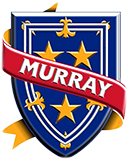Home > Public Works > Stormwater System > FAQs
FAQs
Q. What is stormwater and why is it a problem?
A. Stormwater is water from rain and snowmelt. Rooftops and paved areas
not only prevent the water from being absorbed but help it run off at a
much faster rate.
Q. What is the purpose of the stormwater utility?
A. The stormwater utility was established to provide revenue to maintain
and improve existing stormwater infrastructure in Murray, to preserve,
protect, and improve the water quality issue of stormwater runoff, and
to develop a comprehensive stormwater management plan as mandated by the
Federal government in the SMS4 Phase II Kentucky Pollutant Discharge
Elimination System (KPDES) Permit.
Q. What are the utility fees based on?
A. The utility is based on the amount of impervious area of a property.
Impervious surface area is a surface which impedes the natural
infiltration of water, including, but not limited to roofs, driveways,
patios, or private sidewalks. Impervious area shall be expressed in
Equivalent Rate Units or (ERU)'s. One ERU is equal to 3,000 square feet.
Q. Where does the money go that is collected from the
stormwater utility fee?
A. Some of the important components of this plan include:
1.) Improvement of stormwater quality through monitoring and reduction
of illicit discharges and pollutants.
2.) Increase of public information and education concerning stormwater
issues.
3.) Increase of maintenance and repair of the city's stormwater system.
4.) Development of stormwater design standards and regulations.
Q. Who has to pay the stormwater utility fee?
A. Everyone within the city that either uses or receives benefit from
the maintenance of the stormwater system. Properties in the city that
have impervious surfaces must pay regardless of ownership or tax status.
The only exemptions will be publicly paved streets, roadways, and
sidewalks, property owned or operated by the city, and undeveloped
property that has no impervious surface.
Q. What is the charge for the stormwater utility?
A. See
Detail Billing Link, and see the question below
Q. How do I read my bill?
A. Single-family homes are charged a flat rate of $1.50 each month.
Multi- family dwellings will be charged $1.50 per dwelling unit. Other
properties are charged by the number of ERU's times the monthly charge
of $1.50. An ERU is equal to 3,000 square feet and represents the
average impervious surface area found on a single-family home. All
properties other than single and multi-family homes have been measured
by the city. The number of ERU's for those properties has been
determined by dividing the amount of the property's impervious surface
by 3,000. Any partial ERU is counted as 1 ERU for billing purposes.
Q. Why is the city charging me for rain water?
A. You are not being charged for rain. The service charge is to manage
programs to reduce or eliminate the pollution of stormwater, and to
provide revenue to maintain and improve the existing stormwater
infrastructure in Murray. It has been demonstrated scientifically that
runoff and pollution from a property increase as the amount of
impervious surface area on that property increase.
Q. Hasn't the city always had storm drains? Nothing has
changed at my home/business. Why am I being charged now when I wasn't
several years ago?
A. Yes, the city has had storm drains for a long time. However, the
federal regulations that require a comprehensive stormwater quality
management program are relatively new. These regulations have only been
in effect for cities with a population of 10,000 or more people since
2002. The utility fee will enable the city to meet its responsibilities
to manage the storm drain system, improve water quality, seek out and
eliminate illicit runoff, educate citizens, and enforce pollution
prevention measures and techniques.
Q. Am I still charged even if it doesn't rain for a long
time?
A. Yes. The pollution potential is actually much greater when it has not
rained in a long time because pollutants can build up on all impervious
surfaces. In any storm the initial runoff, or first flush, is the most
contaminated. Contrary to what some people believe, stormwater charges
are not based upon rainfall. Costs are incurred to reduce pollution, and
to provide maintenance and improvements to the stormwater
infrastructure. Rainwater is simply the carrier that transports the
pollutants to open waterways.
Q. How was the rate for household utility fees developed?
A. A statistical sampling was taken of representative properties in
Murray. Each were measured and an average impervious surface area was
determined.
Q. I have a driveway and no gutter lines that go to the
street. Why am I being charged the fee?
A. Everyone benefits from the city's required Stormwater Management
Plan, whether or not each of us has a storm sewer connected directly to
our property. The runoff generated from your property is contributing to
problems downstream. The approach being taken through this program
recognizes that everyone contributes to the problem (runoff and
pollution), and everyone will share in its benefits. (Improved water
quality, reduced flooding, unimpaired access to roads, etc.).
Q. We are a tax-exempt institution. Will we be required to
pay a Stormwater Utility Fee?
A. Everyone within the city either uses or receives benefit from the
maintenance of the stormwater system. Properties in the city that have
impervious surfaces must pay regardless of ownership or tax status. All
impervious surfaces contribute to the pollution problem, and therefore,
tax-exempt entities will need to pay for stormwater, just like they have
to pay for drinking water, wastewater, and other utilities. The only
exemption will be publicly owned paved streets, roadways, and sidewalks,
property owned or operated by the city, and undeveloped property that
has no impervious surfaces.












